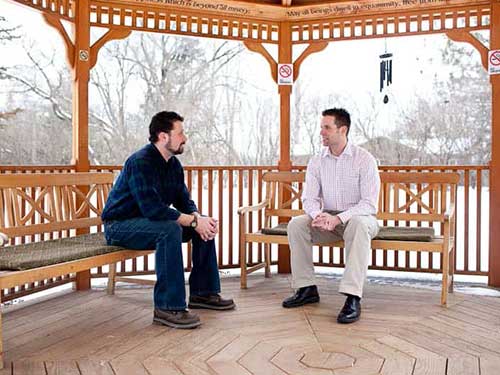Heroin abuse in Wisconsin has reached epidemic levels and continues to have a devastating impact on individuals, families, and communities throughout the state.
These harsh realities are reflected in data from the state’s largest county. From 2005 to 2015, Milwaukee County experienced a 500% increase in heroin and other opioid overdoses. In the three-year period between 2012 and 2015, 888 deaths in Milwaukee County were attributed to heroin or another opioid.
“All too often, people assume that drug abuse is not a problem that could ever impact their lives and their families,” Milwaukee Common Council President, Michael J Murphy, said in a March 21 press release that announced the county’s 888 opioid-related deaths. “But when you crunch the numbers and chart them on a map, you see that this isn’t just an isolated phenomenon. Every neighborhood in every city and every suburb is at risk, and unless we work together across jurisdictions to address this epidemic, the problem will continue to grow.”
In St. Croix County, the problem received significant publicity in 2013, when eight individuals died of heroin-related causes in an eight-month period. In July of that year, more than 450 community members attended an event titled “Heroin in Hudson: A Community in Crisis” to learn more about the heroin abuse epidemic and start to develop strategies for combating the problem.
In the years since that 2013 event in Hudson, St. Croix County has continued to struggle to contain its heroin abuse problem. A Jan. 13, 2015, article in the Hudson Star-Observer noted that officials had experienced some successes, but heroin abuse remained a prevalent danger in Hudson and throughout St. Croix County.
The Search for Solutions
As Wisconsin struggles to rein in the rising rate of heroin abuse, experts are also working to identify possible causes for the dramatic spike and to provide treatment solutions for individuals whose heroin abuse caused them to become addicted to the substance.
As an opioid, heroin can exert a powerful hold on an individual once he or she has become addicted, with symptoms that can include overwhelming urges to consume the drug and severe physical and psychological distress when the individual tries to stop or significantly reduce his or her abuse of it. Thus, many people who become addicted to heroin will not be able to overcome this problem unless they receive professional care.
Effective treatment programs for heroin often start with medically monitored detox to help addicted individuals rid their bodies of this dangerous drug in a safe and relatively comfortable manner, followed by comprehensive therapy to help them make the lifestyle changes that will support long-term recovery.
Getting Help for Heroin Addiction
Of course, before a person can benefit from such services, he or she must acknowledge that he or she has a problem, must be aware of the treatment options that are available, and must be willing to commit the time and energy that are necessary to complete treatment and establish a strong foothold in recovery.
If someone that you care about has been struggling with heroin addiction, here are a few steps that you can take to help him or she get into treatment:
Educate yourself about the disease of addiction so that you have a better understanding of what your loved one is experiencing.
Research programs that offer the type and level of care that is best suited to your loved one’s specific needs.
Talk to experts at the program or programs you are considering to learn how best to talk to a loved one about his or her addiction and about getting professional help.
Get a small group of trusted friends to help you with your research and your efforts to get your loved one into treatment.
Express your concern to your loved one, share your findings with him or her, and offer to assist with making appointments and accompanying him or her to visit programs.
Overcoming a heroin addiction can be a long and difficult process. But the research is clear: professional help combined with a strong support network can put a person in the best possible position to overcome an addiction to heroin and start living a healthier drug-free life.
Wisconsin’s rising rates of heroin abuse and addiction can be reversed, but it will take a concerted effort by individuals who are currently struggling with these problems, as well as ongoing active compassion and support by their friends, family members, and other loved ones.











